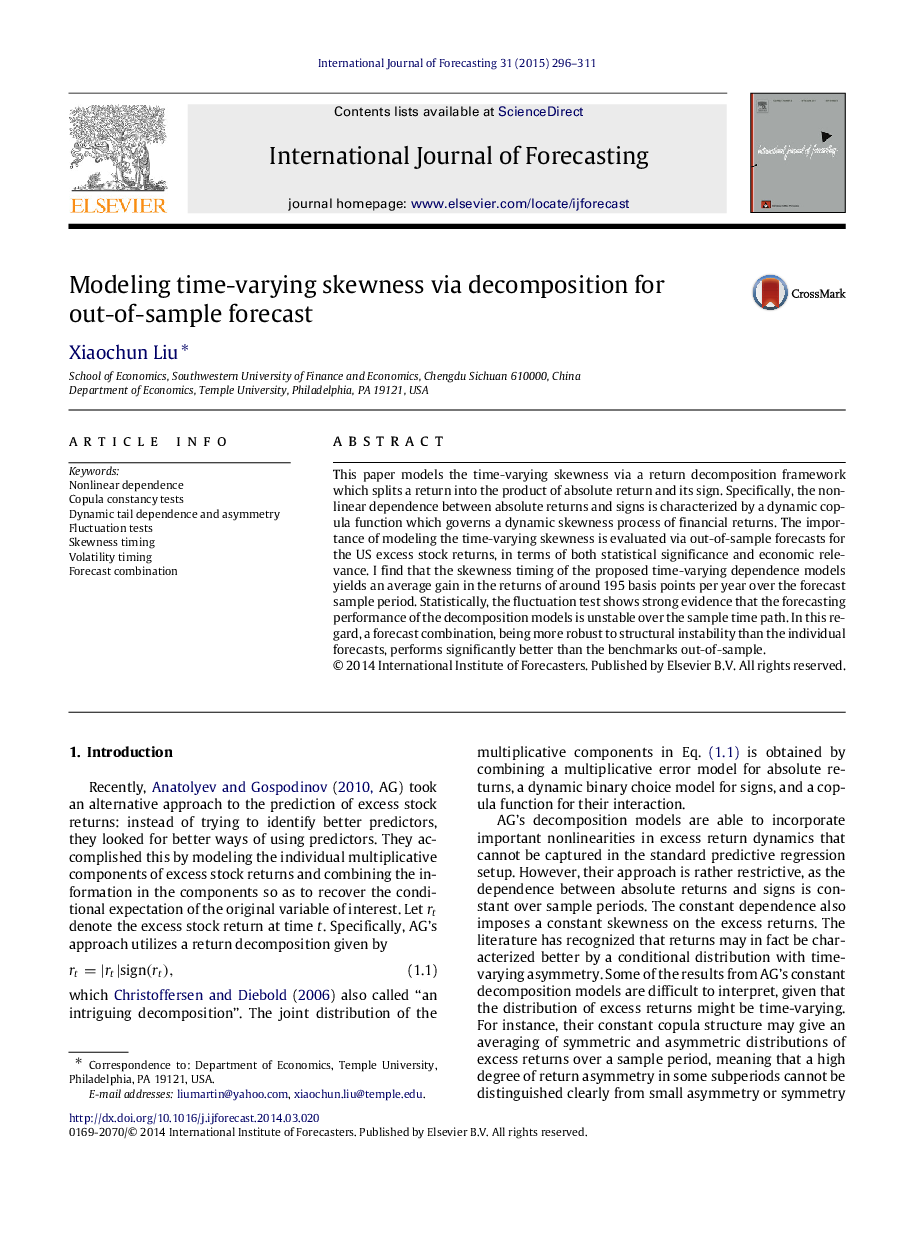| Article ID | Journal | Published Year | Pages | File Type |
|---|---|---|---|---|
| 7408432 | International Journal of Forecasting | 2015 | 16 Pages |
Abstract
This paper models the time-varying skewness via a return decomposition framework which splits a return into the product of absolute return and its sign. Specifically, the nonlinear dependence between absolute returns and signs is characterized by a dynamic copula function which governs a dynamic skewness process of financial returns. The importance of modeling the time-varying skewness is evaluated via out-of-sample forecasts for the US excess stock returns, in terms of both statistical significance and economic relevance. I find that the skewness timing of the proposed time-varying dependence models yields an average gain in the returns of around 195 basis points per year over the forecast sample period. Statistically, the fluctuation test shows strong evidence that the forecasting performance of the decomposition models is unstable over the sample time path. In this regard, a forecast combination, being more robust to structural instability than the individual forecasts, performs significantly better than the benchmarks out-of-sample.
Related Topics
Social Sciences and Humanities
Business, Management and Accounting
Business and International Management
Authors
Xiaochun Liu,
